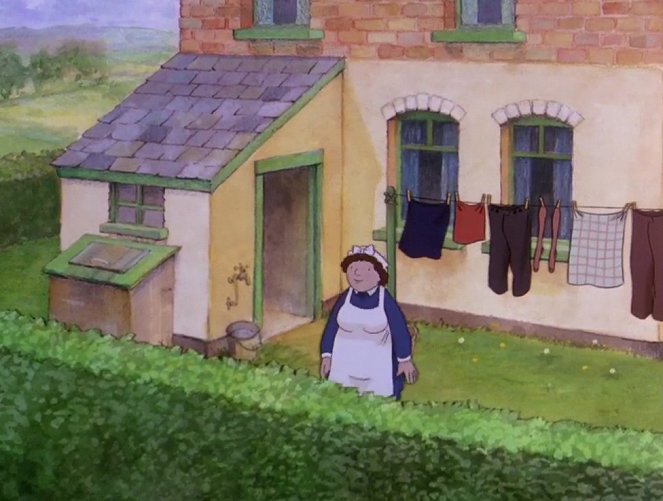Résumés(1)
Jim et Hilda, un couple de retraités, vivent dans un cottage isolé en pleine campagne. Ils apprennent qu'une nouvelle guerre se prépare : une guerre nucléaire. Le couple, confiant dans le gouvernement du pays qui a déjà gagné deux conflits mondiaux, ne comprend guère les implications de cette nouvelle menace mais suit à la lettre les instructions de survie absurdes. La guerre est annoncée à la radio. Hilda se précipite pour aller chercher le linge et Jim, en panique, se met en colère pour la première fois contre sa femme. Les missiles tombent et le cottage est la dernière chose débout dans un paysage calciné. Jim et Hilda se mettent à faire le ménage en attendant que leurs «gars» arrivent. Sans eau ni nourriture, ils commencent à se sentir malades, ignorant qu'ils subissent les premiers effets de la radioactivité... (Unzéro Films)
(plus)Critiques (1)
We can describe When the Wind Blows as Grave of the Fireflies with pensioners and a British temperament, which may give some vague idea of what to expect from the film, but it falls far short of describing its main qualities. The heart of the film is its premise based on the Raymond Briggs graphic novel of the same name, which deals with the themes of atomic warfare and nuclear holocaust through the lens of an ordinary retired couple living in the countryside, whose relationship has settled into the form of small rituals and accepted roles over their years of living together. These rituals and roles form the basis of their immediate response to the threat, which is so devastating that the characters cannot comprehend it in all its severity. In terms of concept, we can actually describe When the Wind Blows as an anti-war farce in which the traditional image of nuclear war is deconstructed by the ordinariness and humanity of the central pair of old-fashioned pensioners, who constantly and naïvely compare the new war with the one that they had survived and bounced back from in accordance with the dominant ideology. Nevertheless, bitter and depressing tones eventually begin to pierce the levity as the first signs of the direction that the old man’s fate will take start to come into focus. Even so, the film never superficially plays on emotions; rather, its impact is derived from contrasts and the viewer’s awareness of the consequences of things that the characters do not understand or do not want to admit.
()
Photos (15)
Photo © British Screen Productions

